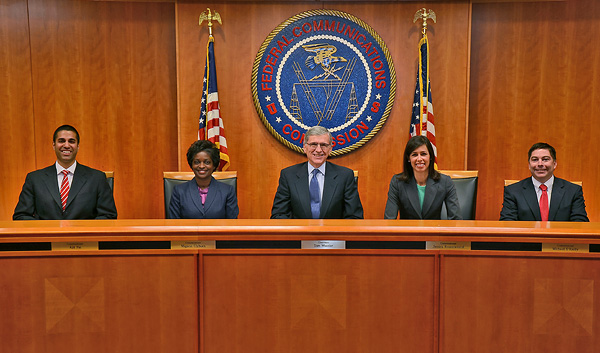The votes are in, and the Federal Communications Commission has approved classification of the Internet as a public utility.
In a 3-to-2 vote, the FCC moved to ban paid prioritization. The new classification means that Internet service providers won’t be able to create fast lanes — a range of tiered pricing options for services based on bandwidth consumption and connection speed. The ruling will give the FCC regulatory authority over both fixed and mobile broadband service providers.
Before the FCC’s decision, a number of Internet companies had formed an alliance to prevent ISPs from being able to enact a stratified system of Internet access. And for today, they’ve won.
Ahead of the vote, Tim Berners-Lee, the inventor of the World Wide Web, gave a speech via video about why an open and equal Internet is so crucial to the future of the Internet:
Twenty-five years ago as an Internet user, I could sit down, write a program, write a web browser, give copies to people, and let them run on computers which were connected to the Internet. All that was necessary was to be plugged into the Internet. I didn’t have to ask anybody’s permission. From this, the World Wide Web spread to reach all the corners of the global interconnected world, enabling hundreds of billions of dollars of economic growth and enhance free speech and democracy around the world.
Etsy chief executive Chad Dickerson and television producer Veena Sud also shared statements prior to the vote.
During his speech, FCC chairman Tom Wheeler came out emphatically in support of the proposal and against the comments of the ruling’s nay-saying opponents.
“This is no more a plan to regulate the Internet than the First Amendment is a plan to regulate free speech!” Wheeler said, nearing yelling.
While commissioners Jessica Rosenworcel and Mignon Clyburn gave similar statements, the two dissenting voters offered scathing indictments. Commissioners Ajit Pai and Michael O’Reilly gave long arguments against today’s proposal, and many broadband providers echo their sentiments.
In his statement, Pai noted that the new proposal was a stark contrast to previous rulings the commission had favorably considered.
“We are flip-flopping for one reason and one reason only, because President Obama told us to,” he said.
The fight for net neutrality is far from over. Carriers like AT&T are widely expected to file for a stay that would suspend the ruling until they are able to file suit against the FCC. Their concern is over the definition of what Internet service providers do.
“We disagree with Justice Scalia’s view that ISPs simultaneously offer both an information service and a telecommunications service,” said Hank Hultquist, AT&T’s VP of Federal Regulation, in a blog post. He says the FCC has always considered these functions mutually exclusive. A potential lawsuit will argue that AT&T and other carriers aren’t just the vehicles that deliver information, they’re also information services themselves. It’s this distinction that could overturn an FCC ruling.
In the meantime, Republicans in Congress have already conceded to the president on the issue of net neutrality, saying they would not be able pass legislation that would shut down an FCC ruling that classifies the Internet under Title II of the Communications Act of 1934.
Companies like Amazon, Netflix, and Etsy are rejoicing. They have avoided tiered Internet pricing — at least for the moment.


